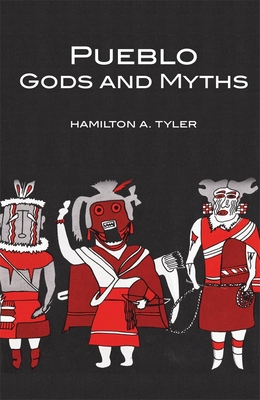Here is a thorough, and long-needed, presentation of the nature of the Pueblo gods and myths. The Pueblo Indians, which include the Hopi, Zuni, and Keres groups, and their ancestors are closely bound to the Plateau region of the United States, comprising much of the area in Utah, Colorado, and-especially in recent years-New Mexico and Arizona. The principal god of the Hopi tribe was and is Masau'u, the god of death. Masau'u is also a god of life in many of its essentials. There is an unmistakable analogy between Masau'u and the Christian Devil, and between Masau'u and the Greek god Hermes, who guided dead souls on their journey to the nether world. Mr. Tyler has drawn many useful comparisons between the religions of the Pueblos and the Greeks. "Because there is a widespread knowledge of the Greek gods and their ways," the author writes, "many people will thus be at ease with the Pueblo gods and myths." Of utmost importance is the final chapter of the book, which relates Pueblo cosmology to contemporary Western thought. The Pueblos are men and women who have faced, and are facing, problems common to all mankind. The response of the Pueblos to their challenges has been tempered by the role of religion in their lives. This account of their epic struggle to accommodate themselves and their society to the cosmic order is "must" reading for historians, ethnologists, students of comparative religion, and for all who take an interest in the role of religious devotion in their own lives. Hamilton A. Tyler attended the University of California and makes his home in Healdsburg, California, where he raises prunes. He says of himself that he is "studiously interested in a number of fields-no less in Milton, biology, ornamental horticulture, and Greek civilization than in Pueblo culture. I like to think of myself in the tradition of the English scholarly amateurs, often country divines." "Pueblo Gods and Myths' most noteworthy contribution is that it synthesizes much of the previous writings on the subject concentrating specifically on 'the gods and divine things'. . . 'Must reading for those interested in the Southwest, for ethnologists, and for students of comparative religion."-California Historical Society Quarterly. "A fascinating journey through the mind and cosmos of the Pueblo peoples, with compass points provided in analogy with ancient Greek religion, and with insights provided by such modern thinkers as Buber and Freud. This volume is a substantial contributi









